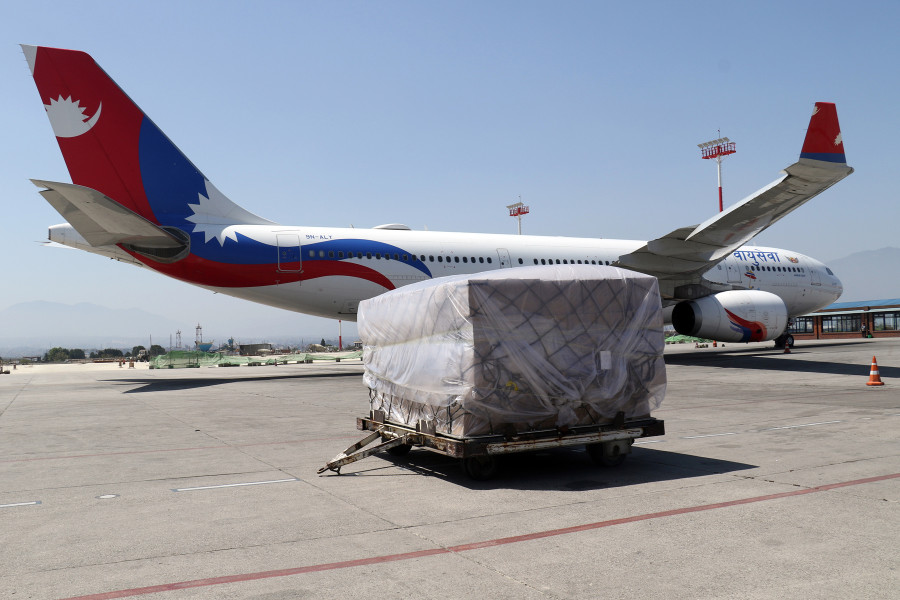National
Procurement monitoring office seeks clarification from Omni as to why it should not be blacklisted
The company, accused of irregularities in the procurement and supply of medical equipment for Covid -19 emergency, has 30 days to submit a response.
Prithvi Man Shrestha
The Public Procurement Monitoring Office has sought clarification from Omni Business Group as to why it should not be blacklisted, as recommended by the Department of Health Services, for the alleged irregularities in the procurement and supply of medical goods for the Covid-19 emergency.
On April 1, the department had scrapped its agreement with Omni regarding the purchase of protective gear, reagents and other medical equipment from China after it was revealed that the company had secured the contract despite quoting much higher prices compared to the prices quoted by other bidders.
The department has cited Omni's failure to supply adequate medical goods in the first batch of delivery and its lack of ability to deliver all goods in time as the reasons, among others, for its decision to terminate the contract, and recommended that the procurement monitoring office blacklist the company.
As per section 63 (c) of the Public Procurement Act, the public procurement monitoring office may blacklist a firm if it is proved that a firm has made substantial error in the implementation of the procurement contract or has not substantially fulfilled the obligation under the procurement contract or the work carried out under the procurement contract is not of the quality set by the contract.
“We issued a notice in the name of Omni on Friday,” Rajesh Kumar Thapa, director at the procurement monitoring office, told the Post.
Omni has 30 days to submit its clarification, as per the existing regulation on public procurement.
As per clause 141 (2) of the Public Procurement Regulation, the procurement monitoring office could also immediately bar Omni from taking part in any new public bids for at least six months, until the decision on the case is taken.
However, the procurement monitoring office has not invoked the clause, which has paved the way for Omni to take part in new public bids.
Thapa, the director at the procurement monitoring office, said that the health services department had not recommended an immediate ban on Omni.
“The department has to make the request and we have to have a sufficient ground to bar a company from taking part in new government bids,” Thapa told the Post.
The procurement monitoring office has asked the department to furnish all necessary documents to back its case against Omni.
“So far, we have only received the letter from the department which states that Omni didn’t fulfill contractual obligations,” Thapa told the Post.
In November 2018, the procurement monitoring office had barred Pappu Construction from taking part in new bids as per the request of Sikta Irrigation Project in Banke. Pappu was eventually blacklisted.
Omni, a relatively new company, has been able to secure many government contracts, including the Rs 3 billion project to open IT labs in 930 community schools, printing of ballot papers for the Election Commisison three years ago, and supplying paper to the Janak Sikshya Samagri Kendra.
Many attribute Omni’s success to the closeness of its owners with the political elites.
In the case of medical equipment supply contracts, rival medical suppliers have said that the Ministry of Health and Population had given them a short deadline so that Omni could get the contract.
In fact, Omni was chosen from between just two firms after a proposal was sought on the same day the ministry discussed with several medical suppliers about importing medical equipment from abroad.
The price quoted by Omni was also too high compared to what the other suppliers had proposed.
The Department of Health Services itself has admitted that rates of medical equipment supplied by Omni was 20 percent higher than the estimated costs.




 17.9°C Kathmandu
17.9°C Kathmandu















